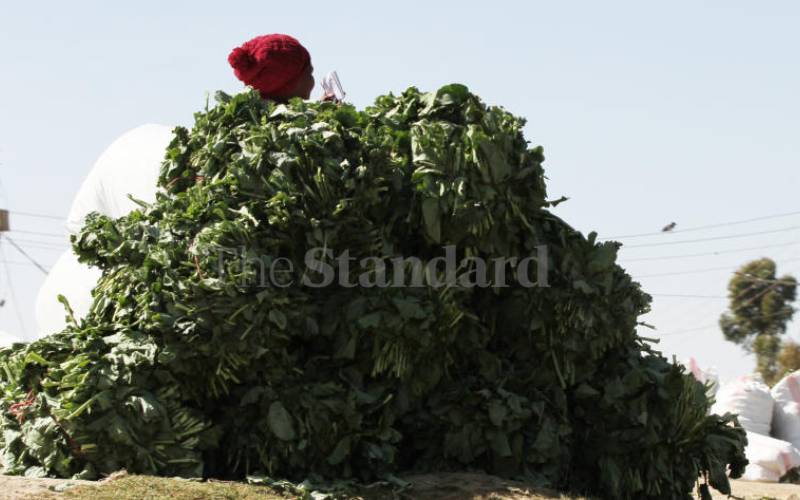×
The Standard e-Paper
Fearless, Trusted News

A woman sells vegetables along Naivasha - Nakuru highway, January 2022. [Elvis Ogina, Standard]
As Ms Phyllis Muhoro, owner of a mini-mart in Hunters, Nairobi, is interviewed, a lady saunters in and walks straight to the pastries section.